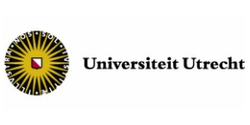Postdoc: Defining Postglacial States and Variability of Terrestrial Biosphere
Updated: 05 Dec 2024
Join us and work with an interdisciplinary group of scientists in the Horizon Europe project 'Past to future: Towards fully paleo-informed future climate projections'.
Your job
Using pollen data, held mainly in the Neotoma database, your task will be to analyse the response of the terrestrial biosphere to rapid and slow climate change during the last 16,000 years. Using information from pollen and macrofossil remains, you will map the position of the tree line through time to test the validity of simulated vegetation responses from land surface models.
In another work package, you will compile and analyse charcoal records from the boreal biome of the northern hemisphere to determine frequency, severity, and synchronicity of wildfires between sites, and compare these with fire proxies in Greenland ice cores.
Requirements:
We look forward to your application if you have the following qualifications:
- a PhD in earth or environmental sciences, or a related field such as environmental archaeology or forestry;
- understanding of late Quaternary vegetation, fire or climate history;
- experience with compiling and analysing large datasets using programming languages such as R or Python;
- an interest in vegetation history or long-term forest dynamics;
- interested in interactions with vegetation and climate modellers, and archaeologists;
- good at working in a team;
- excellent spoken and written English skills.
Salary Benefits:
We offer:
- a position for one year, with an extension to a total of three years upon a successful assessment in the first year;
- a working week of 38 hours and a gross monthly salary between €3,345 and €5,278 in the case of full-time employment (salary scale 10 under the Collective Labour Agreement for Dutch Universities (CAO NU));
- 8% holiday pay and 8.3% year-end bonus;
- a pension scheme, partially paid parental leave and flexible terms of employment based on the CAO NU.
In addition to the terms of employment laid down in the CAO NU, Utrecht University has a number of schemes and facilities of its own for employees. This includes schemes facilitating professional development, leave schemes and schemes for sports and cultural activities, as well as discounts on software and other IT products. We also offer access to additional employee benefits through our Terms of Employment Options Model. In this way, we encourage our employees to continue to invest in their growth. For more information, please visit Working at Utrecht University.
36 - 40 hours per week
Princetonlaan 8a

